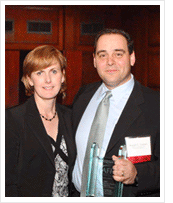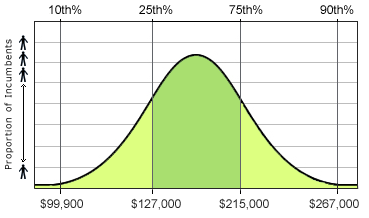Fundraiser
 Do you want to pursue a career that makes positive contributions to both individuals and society? Does the thought of helping a worthy cause raise the funds it needs to provide valuable services in your community or to a larger service area inspire you? If so, a career in fundraising might be a perfect career choice for you.
Do you want to pursue a career that makes positive contributions to both individuals and society? Does the thought of helping a worthy cause raise the funds it needs to provide valuable services in your community or to a larger service area inspire you? If so, a career in fundraising might be a perfect career choice for you.
Fundraisers typically work for political parties, nonprofit organizations or local little league groups. Although it is difficult to solicit potential donors for money, only a few development fundraising professionals spend the majority of their time soliciting money.
However, soliciting money can easily be done if the fundraiser has developed a relationship with the potential donor and the donor's involvement with the cause or organization has been pleasant. Development fundraising professionals spend their time training, recruiting, and motivating volunteers while collecting names of potential donors and identifying donors who will donate large sums of money. Development professionals also develop relationships with potential donors, write grant proposals, supervise phone and e-mail campaigns, and put on fundraisers. Effective fundraisers are trustworthy, intelligent, and self-effacing. Managers who are low pressure, effective salespeople, and well spoken typically perform well as fundraisers.
Even though economic downturns dry up donations, there still exists demand for fundraiser professionals.
Who Hires Fundraising Professionals?
Many different types of nonprofit, political and community organizations hire professionals to work in a fundraising capacity. Health services organizations, such as the American Diabetes Association, American Cancer Society, the March of Dimes, and other similar groups frequently hire fundraisers, also known as development fundraising officers/professionals, special events coordinator, and volunteer services director positions in local, regional, and national offices to support fundraising efforts.
Both public and private colleges and universities are know for hiring fundraising professionals. Just about every higher education institution in the United States has dedicated staff members or officers who's primary responsibility tis alumni relations and fundraising. Many education instituations also employ individuals to write grants to fund academic and applied research.
Arts organizations often employ development fundraising professionals to support their operations. Most symphonies, museums, ballets, operas, and other similer groups rely heavily on grant funds, corporate donations, donations from private parties, and general fundraising campaigns to finance their activities. Public radio and television stations also depend on the same types of fundraising efforts to raise money to support their programs.
Become A Fundraising Generalist or Specialist?
Smaller organizations typically hire fundraising generalists, who manage all aspects of philanthropy, which may include recruiting volunteers, planning special events, organizating corporate campaigns, writing grants, soliciting funds, as well as other efforts to raise money to support activities and operations.
Larger organizations with larger fundraising needs are more likely to have more specialized fundraising positions. Such organizations may have one staff member whose sole responsibility is to research fund raising opportunities and submit grant applications. Someone else entirely may be hired to coordinate and manage special event fundraising activities. Specialized development fundraising professionals may also be hired on an individual basis to solicit funds from private parties, corporations and organizations.
There are variety of entry-level as well as more advanced employment opportunities available for both fundraising generalists and specialists. The kind of fundraising job that is right for you will really depends on if you'll enjoy becoming an expert in one aspect of fundraising, or if you'd prefer being involved in every aspect the fundraising process. Both positions can be very rewarding.
The Executive Fundraisers
Executive fundraisers are development fundraising specialists that work for large organizations. An executive fundraiser is responsible for planning and directing all aspects of an organization's fundraising policies and capital development programs. These fundraisers develop advanced fundraising strategies and campaigns, research new methods of fundraising and determine feasibility of new fundraising initiatives. Becoming an executive fundraiser typically requires a bachelor's degree with several years of experience in the field. Executive fundraisers must demonstrate expertise in a variety of the fundraising field's practices, concepts, and procedures. Executive fundraisers must be very creative and driven. These professionals usually report directly top management. Successful executive fundraisers typically earn between $100,000 and $200,000 a year with a few earning less than $100,000 and a few earning well over $200,000 a year.

If you think you want to launch a career in fundraising but aren't certain you're ready to commit long term, we recommend that you try volunteering with a nonprofit organiziation for a while. Nonprofits rely heavily on volunteers to suppor their fundraising goals. As a volunteer you're sure to get a taste for what it is like to be a development fundraising professional without commiting long term.
Salary Data
Median (8 years of experience): $66,000
25-75 percentile (8 or more years of experience): $54,900-92,700
|
 |
|
Career Education Finder
|
|
Get information on career education programs that could help you increase your earning power.
|
|